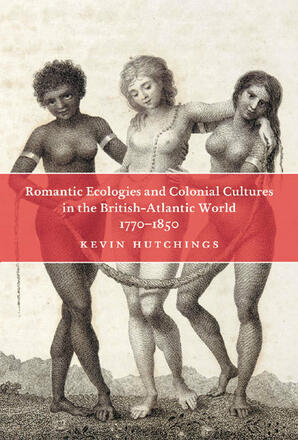
Romantic Ecologies and Colonial Cultures in the British Atlantic World, 1770-1850
Reviews
"This is an ambitious work that successfully attempts nothing less than the synthesis of several strands of literary and cultural analysis that have helped define Romantic studies in the last generation of scholarship (c.1990-present)." Mark Lussier, Arizona State University "Hutchings makes a valuable contribution towards the theorization of postcolonial ecocriticism, developing a two-pronged approach that is attentive to both materiality and ideology, as well as to their inevitable entanglement, arguing persuasively that ecopoetics cannot be cordoned off from ecopolitics." Kate Rigby, Monash University "But Romantic Ecologies and Colonial Cultures in the British-Atlantic World would not be the groundbreaking study it is without Hutchings's attention to the complexity of Ojibwa writer George Copway's inconsistent strategy of counter-discourse to those doctrines of segregation and removal. With Romantic Ecologies and Colonial Cultures, Hutchings gestures towards questions about the politics of patronage and publication, particularly with respect to the writings of Native American and African writers of literary romanticism." Vermonja R. Alston, Department of English, York University "Romantic Ecologies makes a significant contribution to the study of early Canada-particularly, for its attention to indigenous writers and communities." Nicholas Bradley, Canadian Literature "Hutching's readings of Richardson's play The Indians and Campbell's epic poem Gertrude of Wyoming will prove invaluable for those interested in transatlantic Romanticism. This volume complements Tim Fulford's Romantic Indians (2006) and Wordsworth in American Literary Culture, ed by Joal Pace and Matthew Scott (CH, Oct'05, 43-0814) Summing Up: Highly Recommended." D. A. Robinson, Widener University "Refusing to separate ecopoetics from ecopolitics, Hutchings's book is notable for its ability to question representations of nature while drawing attention to its materiality. Of particular interest to postcolonial and Romantic scholars, it deserves attention from any ecocritic interested in interconnections between nature and culture, politics and representation, and the two sides of the Atlantic." Erin James, University of Nevada